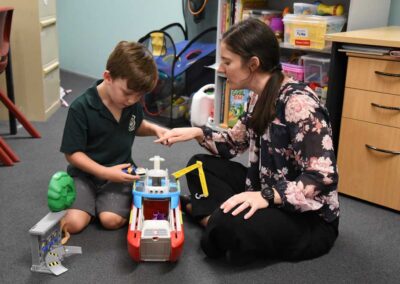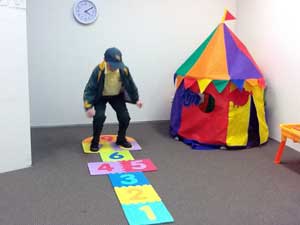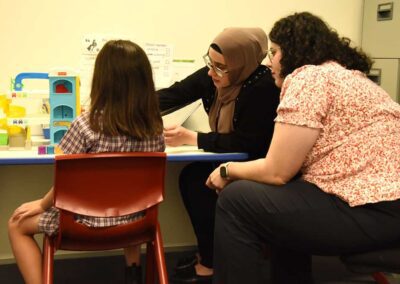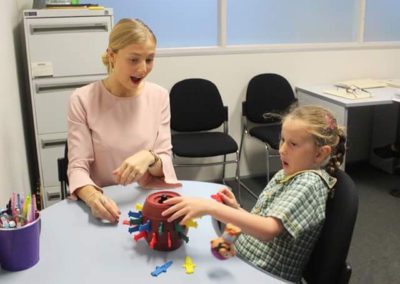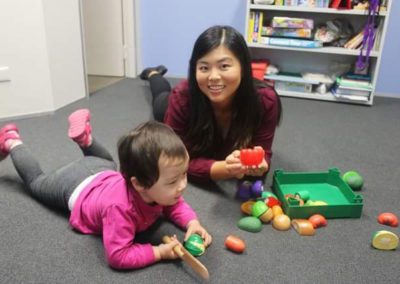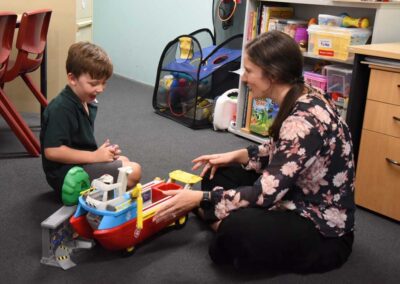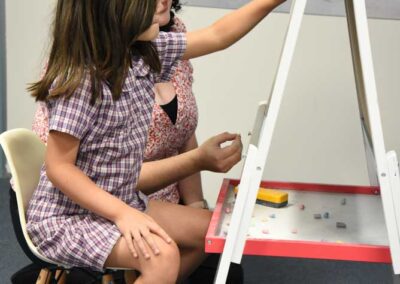The Lasting Benefits of Shared Book Reading
 Shared book reading is more than just reading words on a page. Shared book reading, especially in early childhood, is a powerful activity that boosts and supports a child’s overall development in a number of ways. In this blog, we will explore the profound and lasting benefits that come with the simple yet powerful act of reading together.
Shared book reading is more than just reading words on a page. Shared book reading, especially in early childhood, is a powerful activity that boosts and supports a child’s overall development in a number of ways. In this blog, we will explore the profound and lasting benefits that come with the simple yet powerful act of reading together.
- Developing Language Skills: Book reading exposes a child to new words, expressions, ideas, and sentence structure. They may be introduced to language that they don’t hear in their everyday life and learn new ways of expressing something. Discussions around what is happening in the book builds on language further and encourages the child to use the new words they’ve learnt and to express their thoughts and ideas verbally. This enhances language skills and builds effective communication abilities.
- Vocabulary Building: Exposure to a variety of words and concepts during shared book reading contributes to the expansion of a child’s vocabulary. Discussing new words that they haven’t heard before in the context of a story builds understanding of word meanings. This, in turn, supports their ability to express themselves more effectively with friends, peers, family and other people in the community.
- Developing Cognitive Skills: Shared book reading encourages critical thinking, problem solving, and comprehension skills. Helping your child to make connections between the story and their own experiences can deepen their understanding of the content. By discussing the plot, characters, and outcomes you can help children develop essential cognitive abilities. Talking about why something did or did not happen and predicting what might next are strategies that will help develop critical thinking skills.
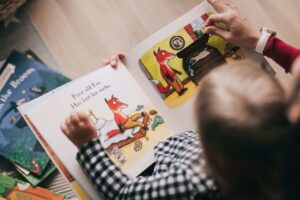
- Literacy Skills: Sharing a book with your child lays the foundation for early reading skills. Children begin to recognise that the words they hear are represented by words on a page. This helps develop an understanding of print and exposes them to foundational literacy skills such as reading from left to right and recognising sentences, words, and letters. They also understand how stories are structured, which is crucial for later reading and writing development.
- Social and Emotional Development: Sharing a book with your child can become special bonding time between parents and children. Children learn about emotions and relationships through the characters and themes in the books you read together. Stories often involve characters facing various challenges and emotions. Talking about this during shared reading can help children develop empathy and a better understanding of human emotions and experiences.
- Imagination and Creativity: Reading engaging stories full of fantasy and adventure can help nurture children’s creativity. By immersing children in imaginative worlds, it can spark their curiosity and encourage them to think creatively, dream vividly and envision endless possibilities.
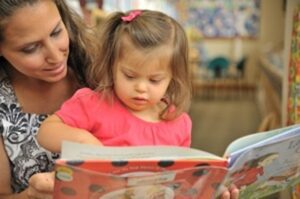
- Cultural Awareness: Shared reading helps broaden a child’s worldview and promotes cultural sensitivity. Books often expose children to different cultures, traditions, and perspectives, which promotes understanding and appreciation of diversity.
- Attention and focus: Sharing a book with your child requires them to sit, listen, and concentrate on the story. This helps develop attention span and focus, important skills that will benefit them in school and other aspects of life. Choosing books that are exciting or are centred around your child’s interests can help them stay focused for longer.
In conclusion, shared book reading is not just a pastime but a timeless gift we can share with children, fostering in them a love for stories and reading. It’s through reading together that we can witness not only the blossoming of literacy skills, but also the nurturing of empathy skills and the creation of cherished moments.


